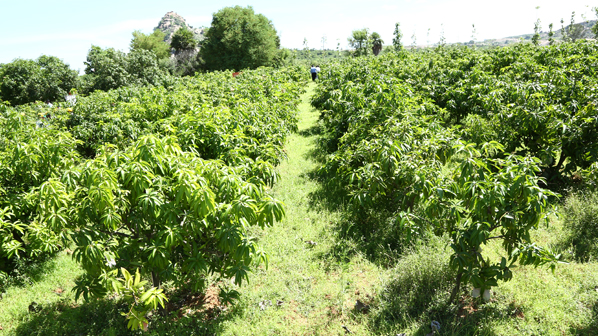
 Industry Best Practice Case
Industry Best Practice CaseCOCA-COLA INDIA’S FRUIT CIRCULAR ECONOMY INITIATIVE
Indian agriculture is the second-largest producer of fruits and vegetables in the world. Despite this, there is an extensive wastage of agriculture produce and the level of fruit processing is minuscule. Lack of storage facilities, logistics, and processing make availability of fruits inconsistent. This coupled with low farm productivity, low prices and low income made worse by erratic rainfall further impedes the growth of fruit processing in India. Furthermore, the Indian Prime Minister had urged beverage companies to incorporate fruit juices in their products to help the farming community.
Over the past years, Coca-Cola India has built significant inroads into the farming community with its focus on sustainable agricultural practices that provide forward linkages to the Indian farmers. Coca-Cola’s strategy was to convey its commitment towards India and the five-year roadmap as a part of the company’s Fruit Circular Economy initiative, under which the company aims at creating a value chain from grove to glass for a virtuous cycle of sustainable agriculture. The initiative is a step towards addressing these issues by harnessing the higher productivity potential of fruits - both at farm level as well as processing industry. Leveraging this association, Coca-Cola India’s efforts are focused on improving the overall fruit availability, increasing farming efficiency as well as building food processing capacity in the country, thereby helping farmers double their income.
The teaching objectives of this case are:
- To comprehend the contribution of agriculture in India’s GDP and employment.
- To discuss strategies to raise farmers income and help alleviate poverty
- Highlight the concept of sustainable agriculture, use of technology in agriculture, and the concept of the Fruit Circular Economy.
- To highlight the limitations in agriculture investment, farmers' knowledge about best practices, market development, and market access.
- To introduce concepts like improved agricultural, economical, social & environmental sustainability by promoting good agricultural practices
- To establish the concept of the triple bottom line in business and social contribution of big brands.
- To promote discussions, deliberations, innovative solutions for bringing mechanically processing of fruits, bringing fruit cultivators into mainstream markets, and generate wider awareness and acceptability.
- The case can be instrumental in creating a system (voluntary or regulatory) socially responsible marketing, requiring brands to include more community development as part of planning, product portfolio, and to motivate consumers to consume more of healthy products.
-
 Pub Date:15 Jul 2020
Pub Date:15 Jul 2020 -
 Source:ICRC
Source:ICRC -
 Discipline:Strategic Management,Operations Management,Managerial Economics,Supply Chain Management,Entrepreneurship & Startups / Innovations,Corporate Social Responsibility,Business Ethics
Discipline:Strategic Management,Operations Management,Managerial Economics,Supply Chain Management,Entrepreneurship & Startups / Innovations,Corporate Social Responsibility,Business Ethics -
 Product#:1449
Product#:1449 -
 Keywords:Indian agriculture, fruit circular economy, Indian farmers, Coca-Cola, sustainable agriculture, fruit processing industry, framers double income
Keywords:Indian agriculture, fruit circular economy, Indian farmers, Coca-Cola, sustainable agriculture, fruit processing industry, framers double income -
 Length:Pdf : 7 page(s) ,
Length:Pdf : 7 page(s) ,
 Industry Best Practice Case
Industry Best Practice Case